Breast Augmentation in Croatia
Search and Compare the Best Clinics and Doctors at the Lowest Prices for Breast Augmentation in Croatia
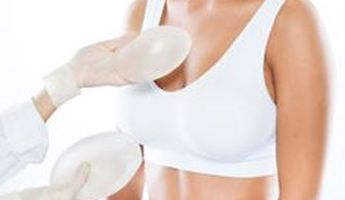
Find the best clinics for Breast Augmentation in Croatia
With Medijump you can browse 7 facilities offering Breast Augmentation procedures in Croatia. The cheapest price available is $477 in Zagreb. And for the cheapest price globally, prices start from $208 in Hungary.
Breast Augmentation in Zagreb
Price: $ 477
Breast Augmentation in Hvar
Price: $ 2,898
Hungary offers the best prices Worldwide
Price: $ 208
From 28 verified reviews
nika pejic, 16 September 2020
izvrsni, svi od reda, i doktori i sestre. dr. dinko je daleko najbolji kirurg na ovim prostorima, jako sam zadovoljna s rezultatima operacije nosa, ispalo je tocno onako kako sam htjela. ne izgledam umjetno i preoperirano, bas taman. idealno.
From 7 verified reviews
Nella-Nella, 19 August 2020
Excellent Dr. Domagoj Eljuga. Pleasant atmosphere, expertise, kindness..all in one place..No more stars, a clean five.
Poliklinika Maletić, located in Trg Sv Stjepana, Hvar, Croatia offers patients Breast Augmentation procedures among its total of 10 available procedures, across 4 different specialties. The cost of a Breast Augmentation procedure starts from $3,173, whilst the national average price is approximately $2,296. All procedures and treatments are undertaken by just a small team of specialists, with 3 in total at the Hospital, and they are not accredited by any recognized accreditations institutes
Arcadia Clinic For Plastic and Aesthetic Surgery, located in Ul grada Vukovara A, Zagreb, Croatia offers patients Breast Augmentation procedures among its total of 32 available procedures, across 3 different specialties. The cost of a Breast Augmentation procedure starts from $477, whilst the national average price is approximately $2,296. There are many specialists available at the Clinic, with 10 in total, and they are accredited by CSPRAS - Croatian Society of Plastic, Reconstructive and Aesthetic Surgery
Cosmetic Plastic Surgery - Facial Plastic Surgeon, located in Trg Sv Stjepana, Hvar, Croatia offers patients Breast Augmentation procedures among its total of 39 available procedures, across 3 different specialties. The cost of a Breast Augmentation procedure ranges from $2,898 to $3,434, whilst the national average price is approximately $2,296. There is currently a lack of information available on the specialists practicing at the Hospital, and they are accredited by CSPRAS - Croatian Society of Plastic, Reconstructive and Aesthetic Surgery
Cosmetic Surgery Dr. Žgaljardić, located in Ul grada Vukovara A, Zagreb, Croatia offers patients Breast Augmentation procedures among its total of 51 available procedures, across 7 different specialties. Currently, there's no pricing information for Breast Augmentation procedures at Cosmetic Surgery Dr. Žgaljardić, as all prices are available on request only, whilst the national average price is approximately $2,296. All procedures and treatments are undertaken by the lead specialist at the Hospital, and they are not accredited by any recognized accreditations institutes
Medicinska Mreža - Health Travel Agency, located in Ul grada Vukovara A, Zagreb, Croatia offers patients Breast Augmentation procedures among its total of 19 available procedures, across 1 different specialties. Currently, there's no pricing information for Breast Augmentation procedures at Medicinska Mreža - Health Travel Agency, as all prices are available on request only, whilst the national average price is approximately $2,296. All procedures and treatments are undertaken by the lead specialist at the Hospital, and they are not accredited by any recognized accreditations institutes
- Home
- Croatia
Compare Before & After Photos of _procedure_photos.phpBreast Augmentation


Full-side view
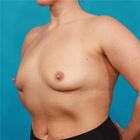

Half-side view

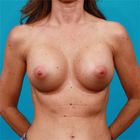
Front view
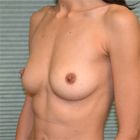

Half-side view
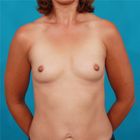

Front view
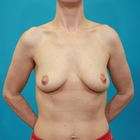

Front view
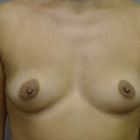
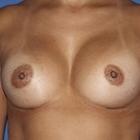
Front view
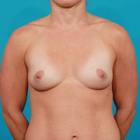
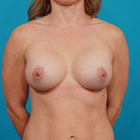
Front view
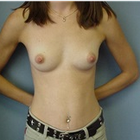
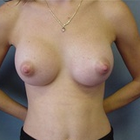
Front view
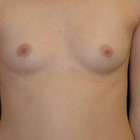
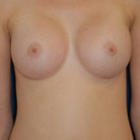
Front view
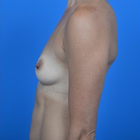
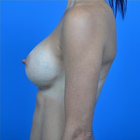
Full-side view
WHY US?
At Medijump, we're making medical easy. You can search, compare, discuss, and book your medical all in one place. We open the door to the best medical providers worldwide, saving you time and energy along the way, and it's all for FREE, no hidden fees, and no price markups guaranteed. So what are you waiting for?

Free

Best Price

Widest Selection

Risk-Free
What you need to know about Breast Augmentation in Croatia

Breast augmentation, also known as a Boob Job or Breast Enlargement, is a surgical procedure aimed at increasing breast size, enhancing shape, or improving symmetry. In Croatia, this procedure is carried out by board-certified plastic surgeons in accredited medical facilities, ensuring both safety and quality.
What is the cost of Breast Augmentation in Croatia?
Prices in Croatia are competitive, often offering savings without compromising on quality, especially when compared to costs in the US or Europe. However, factors such as surgeon’s fees, facility costs, and the type of implants affect the total cost.
What does a Breast Augmentation Procedure Involve?
The surgery involves placing breast implants under the breast tissue or chest muscles. Choices between saline or silicone implants can be made based on the desired feel and appearance. This is something your surgeon will discuss with you prior to even travelling.
How Long Should I Stay in Croatia for a Breast Augmentation Procedure?
The length of stay in Croatia for a Breast Augmentation is subject to various factors, such as your overall health, the specific nature of the procedure, and your individual recovery rate. Generally, Breast Augmentation surgery is an outpatient process, meaning you may be able to return home on the same day. However, a stay of up to two days might be necessary if your procedure is more intricate.
Although the hospital stay is relatively brief, it is advisable to remain in Croatia for at least one-week post-procedure. This timeframe allows for initial recovery and a follow-up appointment with the surgeon. Moreover, in the event of any complications, prompt medical assistance will be accessible. Thorough knowledge of the recovery process and its duration is crucial for proper preparation and managing stress during treatment.
What's the Recovery Time for Breast Augmentation Procedures in Croatia?
Post-surgery, a recovery period of one to two weeks is generally required, with follow-up visits to the surgeon. It's crucial to follow all post-op instructions for optimal healing.
Experiencing swelling and discomfort following the operation is normal, both of which should gradually alleviate with time. You will be required to wear a compression garment, take prescribed medications, and maintain a healthy lifestyle for an effective recovery.
What sort of Aftercare is Required for Breast Augmentation Procedures in Croatia?
Post-operative care is critical for the success of a Breast Augmentation. The initial recovery phase usually includes prescribed medications to alleviate pain and avert infection. Individuals can normally resume everyday activities within a few weeks, depending on their healing pace and bodily responses. However, it is advisable to refrain from vigorous activities for a minimum of six weeks post-procedure.
What's the Success Rate of Breast Augmentation Procedures in Croatia?
In Croatia, Breast Augmentation boasts a relatively high success rate, which contributes to its immense popularity among individuals seeking improvements in their physical appearance. Numerous patients have reported satisfaction and enhanced confidence after undergoing the procedure, making it a widely favoured cosmetic surgery.
Are there Alternatives to Breast Augmentation Procedures in Croatia?
In Croatia, there are several alternatives to the Breast Augmentation. If you're considering breast augmentation strictly for cosmetic reasons and prefer non-surgical options, various suitable methods are available. Alternatives include fat grafting, hormonal therapy, and natural remedies. Fat grafting, also known as fat transfer, involves removing fat from different body parts and injecting it into your breasts. This approach is regarded as safer because it employs the body's tissue, minimizing complications.
What Should You Expect Before and After the Procedure?
Prior to the procedure, your surgeon will discuss your expectations and the anticipated outcomes of your Breast Augmentation. The preoperative consultation comprises an in-depth conversation about your medical history, a physical examination, and an outline of the procedure and postoperative care. Open and candid communication with your healthcare provider is crucial at this stage to ensure the treatment matches your objectives.
Post-procedure, initial swelling and discomfort are normal and can be managed with prescribed medication. It's vital to adhere to your surgeon's post-operative guidelines, which include caring for surgical incisions, taking prescribed medications, and attending follow-up appointments. As swelling subsides and incision lines fade gradually, your enhanced breast profile will become apparent.
Keep in mind that the decision to pursue a Breast Augmentation is deeply personal and should not be made hastily. Allocate time to consider the advantages and drawbacks, and ensure you are well-informed.
What are the Risks and Complications of Breast Augmentation Procedures in Croatia?
As is the case with any surgical intervention, Breast Augmentation comes with its own set of risks and potential complications that need to be considered. These may include infections, bleeding, alterations in nipple or breast sensations, implant leakage or rupture, development of scar tissue, and unsatisfactory outcomes that could necessitate further surgeries.
Some individuals may also encounter complications tied to anesthesia, such as respiratory problems and reactions to medication. The psychological ramifications should not be overlooked, considering surgical procedures can impact mental well-being. An extensive conversation with your healthcare provider about these potential risks remains a key component in making an informed choice.
How to Prepare for Breast Augmentation in Croatia?
Thorough preparation plays a significant role in the success of your Breast Augmentation. Before the surgery, you must have detailed conversations with your surgeon about your medical background, allergies, current medications, and lifestyle habits such as smoking or alcohol consumption. You may need to cease certain medications and habits, including smoking, weeks before the procedure, as they can influence the healing process.
Practical preparations like organizing for someone to be with you on the day of the surgery, scheduling sufficient time off work for recovery, and establishing a comfortable space at home for recuperation can contribute to a smoother post-operative phase. Your surgeon's team will also advise you on pre-operative fasting and hygiene guidelines.
What are some Common Misconceptions about Breast Augmentation?
Despite its widespread popularity, numerous misconceptions surround the Breast Augmentation. One such misconception asserts that breast implants are permanent. In actuality, breast implants may require replacement after 10-15 years, with the specific timeframe depending on individual health and lifestyle factors. Another false assumption is that breast augmentation solely serves vanity purposes. In reality, many patients undergo this procedure following mastectomy or as part of gender-affirming surgery.
A further common myth suggests that breast augmentation hinders breastfeeding. While a few instances might affect breastfeeding, the majority of individuals with breast implants can successfully breastfeed.
Whilst the information presented here has been accurately sourced and verified by a medical professional for its accuracy, it is still advised to consult with your doctor before pursuing a medical treatment at one of the listed medical providers
No Time?
Tell us what you're looking for and we'll reachout to the top clinics all at once
Enquire Now

Popular Procedures in Croatia
Prices Start From $834

Prices Start From $500

Prices Start From $93

Prices Start From $85

Prices Start From $477

Prices Start From $931

Recommended Medical Centers in Croatia for Breast Augmentation

- Interpreter services
- Translation service
- Religious facilities
- Medical records transfer
- Medical travel insurance
- Health insurance coordination
- TV in the room
- Safe in the room
- Phone in the room
- Private rooms for patients available

- Interpreter services
- Translation service
- Religious facilities
- Medical records transfer
- Medical travel insurance
- Health insurance coordination
- TV in the room
- Safe in the room
- Phone in the room
- Private rooms for patients available

- Interpreter services
- Translation service
- Religious facilities
- Medical records transfer
- Medical travel insurance
- Health insurance coordination
- TV in the room
- Safe in the room
- Phone in the room
- Private rooms for patients available

- Interpreter services
- Translation service
- Religious facilities
- Medical records transfer
- Medical travel insurance
- Health insurance coordination
- TV in the room
- Safe in the room
- Phone in the room
- Private rooms for patients available

- Interpreter services
- Translation service
- Religious facilities
- Medical records transfer
- Medical travel insurance
- Health insurance coordination
- TV in the room
- Safe in the room
- Phone in the room
- Private rooms for patients available

- Interpreter services
- Translation service
- Religious facilities
- Medical records transfer
- Medical travel insurance
- Health insurance coordination
- TV in the room
- Safe in the room
- Phone in the room
- Private rooms for patients available

- Interpreter services
- Translation service
- Religious facilities
- Medical records transfer
- Medical travel insurance
- Health insurance coordination
- TV in the room
- Safe in the room
- Phone in the room
- Private rooms for patients available

- Interpreter services
- Translation service
- Religious facilities
- Medical records transfer
- Medical travel insurance
- Health insurance coordination
- TV in the room
- Safe in the room
- Phone in the room
- Private rooms for patients available

- Interpreter services
- Translation service
- Religious facilities
- Medical records transfer
- Medical travel insurance
- Health insurance coordination
- TV in the room
- Safe in the room
- Phone in the room
- Private rooms for patients available

- Interpreter services
- Translation service
- Religious facilities
- Medical records transfer
- Medical travel insurance
- Health insurance coordination
- TV in the room
- Safe in the room
- Phone in the room
- Private rooms for patients available
Breast Augmentation in and around Croatia
About Croatia
Despite its relatively small size, Croatia presents a striking geographical diversity. It undoubtedly has a unique charm for those indulging in fantasies of an idyllic beach holiday. Being home to a vast stretch of seafront that spans thousands of miles and an intriguing archipelago with hundreds of islands, Croatia upholds a significant appeal for lovers of sun, sand, and surf.
Beyond its appealing coastlines, Croatia encompasses much more in its terrains. The expanse of the country is dotted with rugged, dramatic mountains that serve as the perfect backdrop to ancient towns that are enclosed within historical walls. The country is rich in untouched national parks that are truly a paradise for nature enthusiasts.
You also get a glimpse of regal history through majestic castles that mark the Croatian landscape. The icing on the cake is its fantastic cuisine that adds a flavorful dimension to one's experiences. Last but not least, the impressive Roman ruins scattered across the country are a testament to its astonishing historical heritage, enticing history buffs worldwide to explore Croatia.
Although Croatia is a newcomer to the medical tourism sector, the demand for medical services in the country by foreign patients is increasing. Its strong growth is largely driven by the high cost of private care and long waiting times in public healthcare in countries such as the UK and the US. Croatia is known to have affordable, top-quality treatments performed by highly qualified medical professionals. Also, medical centers in the country have modern equipment, friendly staff, and exceptional services.
Popular Parts of Croatia
Zagreb, the bustling capital of Croatia, is a vibrant city that boasts a blend of verdant parks, unconventional art galleries, and enticing museums. Even though the city pulsates with modern energy, its scenery stands distinguished by an array of neo-baroque and art deco buildings that impart a unique architectural charm.
The vibrant city of Zagreb brims with an eclectic mix of attractions that can appeal to a wide range of tastes and interests. One such unique point of interest is the Museum of Broken Relationships. This peculiar museum offers an offbeat exploration into the vestiges of love that has ended, providing a distinctively intimate glimpse into personal stories of heartbreak.
Another notable site that significantly attracts visitors is the serene Mirogoj. Not just an ordinary cemetery, Mirogoj stands out as one of the finest architectural gems in Croatia, offering a peaceful retreat within the lively cityscape. Balancing modern dynamics with a deep-rooted cultural heritage, Zagreb indeed offers engaging facets for every type of traveler.
The Croatian Museum of Naïve Art, standing as a symbol of the country’s rich artistic history, is a must-visit for art aficionados. Further, the bustling Dolac Market is the city's epicentre for fresh produce where locals and tourists alike converge. Rounding off the list is the Funicular Railway, another essential experience that offers a charming way to take in Zagreb's panoramic views.
Those who want to enjoy Croatian’s famous beaches and explore ancient monuments should visit Dubrovnik. Known as the “Pearl of the Adriatic,” this city has a giant walled Old Town, stunning mountains, and idyllic beaches.
Weather and Climate in Croatia
Croatia's summer season, extending from July to August, is characterized by lovely warm weather and dry conditions, with a generous sprinkling of sunshine across most days. Transition seasons such as spring (April to June) and autumn (September to October) also offer a fairly warm and agreeable climate, making them pleasant times to visit. However, the spring season can sometimes bring increased rainfall.
On the other hand, winters in Croatia, particularly in January, can dip into colder temperatures. This chill factor is more pronounced in areas of higher elevations, where it's common to witness snowy landscapes. Each season in Croatia brings with it a distinctive climate and charm, shaping the country's scenic beauty in different ways throughout the year.
As the calendar flips over to the cooler months, the Croatian landscape transitions from sun-kissed beaches to frost-laden terrains, especially in the elevated regions of the country. Here, it is not unusual to see snowfall, adding a whole new dimension to Croatia's captivating beauty. Still, regardless of the weather, Croatia retains its charm, offering visitors an array of unique experiences all year round. The country's seasonal moods only add to its diverse appeal, ensuring that there's always something beautiful to see or experience, making Croatia a truly year-round destination.
Getting around in Croatia
Zagreb Airport claims the title of being the largest and most frequented international airport in Croatia. This bustling transport hub is where the majority of global explorers set foot in the country.
The airport operates a host of both regular and seasonal air services that connect Zagreb to numerous metropolises worldwide. Notable among these are Paris, Toronto, London, Barcelona, Dubai, and Seoul, further emphasising Zagreb Airport's significance in global travel.
There are good transport options in Croatia. Domestic flights are the fastest option to get around, though they can be a bit expensive. The bus network is run by a lot of different companies and is generally comfortable.
The Croatian Railways has a reasonably efficient service and is cheaper than buses, but they are slower and less frequent. There is a large network of catamarans and car ferries. In major cities, the main form of transport is buses. Taxis are available and are expensive.
Tourist Visas in Croatia
EU nationals, Canadian, Australian, British, and US nationals do not need to apply for a visa to stay in Croatia for up to 90 days. While Croatia is not yet a member of the Schengen area, holders of Schengen visas to enter the country without having to apply for an additional visa.
Tips for applying for a tourist visa to Croatia:
- Plan ahead. It is important to apply for your visa well in advance of your travel date, as the processing time can vary depending on the country where you are applying.
- Be complete and accurate. Make sure to complete the visa application form accurately and completely, and provide all of the required supporting documents.
- Pay the visa application fee. The visa application fee varies depending on your nationality and the type of visa you are applying for.
- Attend a visa interview, if required. Some nationalities may be required to attend a visa interview at the Croatian embassy or consulate in their home country.
Additional Information
- Local Currency: Croatian kuna (HRK) is the official currency in Croatia. 1 USD is equivalent to 7.08 HRK.
- Money & Payments: ATMs are widespread. Credit cards, including MasterCard and Visa, are widely accepted around the country. Tipping in Croatia is expected, although it is not obligatory. It is standard to leave a 10% to 15% gratuity in restaurants. Taxi drivers usually do not expect tips, but it is common to round to the nearest kuna.
- Local Language: The official language is Croatian. Serbian, Hungarian, Slovenian, and Italian are spoken by ethnic minorities living in the country. In tourist areas, people speak good English, as well as some German and Italian.
- Local Culture and Religion: More than 87% of Croatia’s population adhere to Roman Catholic, while Eastern Orthodox Serbs are followed by around 4.4% of the population. There are small groups of Muslims, Jews, and Protestants as well.
- Public holidays: Some of the most important public holidays in Croatia are Christmas, Epiphany, Easter Monday, Labor Day, Saint Stephen’s Day, Corpus Christi, All Saints’ Day, and Assumption Day.
Popular Searches
- Plastic Surgery in Thailand
- Dental Implants in Thailand
- Hair Transplant in Thailand
- Breast Augmentation Thailand
- Gastric Sleeve in Thailand
- Gender Reassignment Surgery in Thailand
- Laser Hair Removal in Bangkok
- Botox in Bangkok
- Dermatology in Bangkok
- Breast Augmentation in Bangkok
- Coolsculpting in Bangkok
- Veneers in Turkey
- Hair Transplant in Turkey
- Rhinoplasty in Turkey
- Stem Cell Therapy in Mexico
- Rhinoplasty in Mexico
- Liposuction in Mexico
- Coolsculpting in Tijuana
- Rhinoplasty in Korea
- Scar Removal in Korea
- Gastric Sleeve in Turkey
- Bone Marrow Transplant in India
- Invisalign in Malaysia
- Plastic Surgery in the Dominican Republic
- Tummy Tuck in the Dominican Republic
- Plastic and Cosmetic Surgery in Poland
- Rhinoplasty in Poland
- Hair Implant in Poland
- Dental Implants in Poland
- IVF in Turkey






